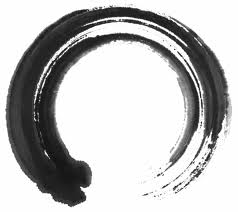
There are two major forms within Chen Family Taijiquan: the Yilu, or first road and the Erlu, or second road. In traditional practice, the Yilu is called the Gongfu form. It is considered the Gongfu form not because of flash and depth, but rather because of its simplicity, the focus on the basics. Compared to the second road, the first form is not as flashy, not performed as fast, and is arguably simpler. We are instructed to focus the majority of our time and attention training this form--over and over again. Further, we are often instructed to isolate one or two movements from this form and work them again and again. To the untrained eye or the new practitioner, this may seem boring or redundant, and certainly not deep. But that is far from the truth.
The Yilu is called the Gongfu Form because it is the vehicle we use to develop skill. In order to run, one must be strong at walking. I would argue that working on the basics is going deep, it's just a different path to the depths. My two main teachers in this life have both focused the bulk of their training on developing the basics (KISS), and while I admit I have had some frustration with that, I have to admire them and, further, admit that in the end that has made all the difference for me. The reason it has made all the difference is that while life is on one hand mysterious and weird, on the other hand it is plain, easy, and in a word, simple. True teachers teach us what we need, not necessarily what we think we want. I consider these two men as true teachers for me. I don't think there was ever a chance that I would not have been introduced to either of them. I firmly believe finding them, and thus becoming their student was no accident. It was inevitable.
So, yes, I do value investigating the depths and there is an aspect of my practice that seeks to nurture that. But at the same time I value the thusness of every moment, and the plainness of life. In terms of training, there is a time and place for both approaches. True development for me is knowing this, knowing the difference, and knowing when to emphasize one or the other. This is the Way.
 RSS Feed
RSS Feed
